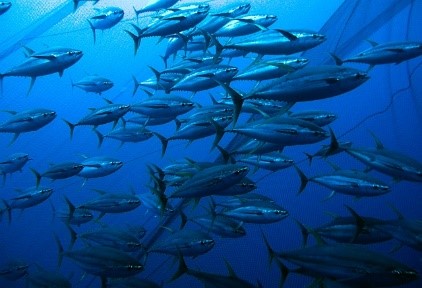





Disclaimer: Copyright infringement not intended.
Context
IOTC Details
Tuna
|
Pelagic fish live in the pelagic zone of ocean or lake waters—being neither close to the bottom nor near the shore—in contrast with demersal fish that live on or near the bottom, and reef fish that are associated with coral reefs. The marine pelagic environment is the largest aquatic habitat on Earth, occupying 11% of known fish species. |
|
PRACTICE QUESTION Q. Consider the following statements: 1.Tuna Fish can maintain a body temperature higher than that of the surrounding water. 2.The Agreement for the Establishment of the Indian Ocean Tuna Commission is open to any state that has coasts within the Indian Ocean region. 3.India is a member of the Indian Ocean Tuna Commission. Which of the above statements is/are incorrect? A) 1 and 2 only B) 3 only C) All D) None Answer: D) None |




© 2026 iasgyan. All right reserved